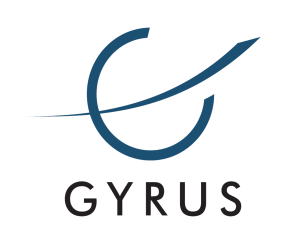Enterprise Learning Management Systems
By creating advanced learning materials or introducing more engaging course modules, trainers constantly aid organizational growth by imparting world-class training. But these days, the traditional classroom-based training method is losing popularity because it is not flexible for working professionals, nor does it yield satisfying results. So, companies are looking for flexible learning methods that can assist working professionals and give them the liberty to work in their own space. Corporate Learning Management Systems (LMSs) can provide more benefits than you have imagined.
The learning and management system is an online platform that helps an organization train and develop its workforce with the latest skillsets and advanced technologies. It is a cloud-based software that centralizes the entire training system and helps the workforce train and generate together, whether they work from the office, in remote areas, or at home. These days almost every corporate industry incorporates online training platforms to impart training and development to their team. It has been revealed that around 15–20 % more enterprises are opting for Learning Management Systems to reap innumerable benefits every year.
While selecting an LMS for your organization, you should not only look to fulfill your organizational needs. Instead, you need to look beyond that and look for a system that assists individual growth and therefore accelerates the team. But a team is composed of various individuals with different goals, learning capabilities, working schedules, and many other factors. A single platform might not be suitable for providing personalized output. That is why choosing a Learning Management System that aids in flexible learning with various features is always recommended. So to understand the flexibility of training and development software, it is essential to consider the factors mentioned below.
Essential Factors To Consider When Choosing An LMS For Flexible Learning
1. System Integration
A cloud-based corporate LMS should be integrated with various devices and businesses. A flexible corporate learning and management system supports a variety of training methods, from instructor-led live training to blended training, all can be achieved through it.
2. Scalability
Always choose an online employee training system that can be scaled up or down based on business or organizational needs. Without the feature of scalability, an LMS would be of no use.
3. Adaptability
An LMS needs to be adapted and updated rapidly with changing business needs. Technology is very dynamic and gets updated regularly, so an online training software might support all rapid changes and upgrade itself to help the organization adapt and develop in the rat race.
4. Customization
A good corporate training and development system needs to be customized as per individual needs. As stated earlier, each person has different learning abilities, so a customized LMS can provide personalized learning pathways to each user. With a customization option, a trainer can easily track, modify or change the content as per the learner’s needs and help them achieve their goals quickly.
5. User-Friendly Interface
An online LMS platform is also used for self-training or accessing. So you need to check whether all its features are accessible or not, as some of the most advanced forms of LMSs are very hard to evaluate. Without knowing its elements, it is impossible to unlock its true potential. So, user-friendliness is a critical factor that should be considered.
6. Mobile-Friendliness
Another critical factor is mobile flexibility. These days people are more comfortable with mobile devices and access learning through them, so it is not always possible to access the training materials through a desktop or a laptop. Choose an eLearning management system that can be accessed using a tablet, smartphone, Chromebook, or notebook so that a working professional can access it anytime and learn at their own pace.
7. Permissions
A corporate training software provides a diverse set of permissions, so choosing a Learning Management System that offers a considerable amount of flexibility to various professionals, from L&D and HR managers to frontline managers, will be the wisest decision.
8. Tracking And Reporting
One of the most distinguishing factors of corporate training and development software is tracking. A good learning and management system will always provide advanced tracking and progress checking features. It will help an instructor understand the progress of his learners at the individual level and get a meaningful insight into the generated report, which will help them detect any shortcomings. Thus they can create different course modules focusing on those areas. Similarly, a learner can understand and check their progress level after completing each course module with the self-tracking and reporting feature. You can receive critical and valuable insights with flexible reporting functionality.
So it is essential to keep in mind the above functionality while choosing an online training and development portal to make it a flexible option for your workforce. When selecting a Learning Management System from a vendor, it is essential to ask the following questions:
- What are the various learning paths offered?
- How many types of authentication protocols are offered?
- Can the User Interface be customized? If yes, then how far?
- Suggest some features that will go best with my industry and can be fully customized.
- Will 24/7 support be provided in case of customization?
- Can the overall look and background of the LMS be changed to make it better suited for my business and brand?
- Do I need to hire IT professionals for assistance, or will this service be provided?
- Suggest some types of LMS integrations that go with my brand.
- What will be the overall cost? And will it be negotiable?
An excellent and advanced Learning Management System will be highly flexible for your workforce and help you to get the best out of it.

GyrusAim
The GyrusAim Product Suite is designed to completely manage the learning & development programs of companies ranging from 100 learners up to multi-site, enterprise organizations requiring complex training.


















